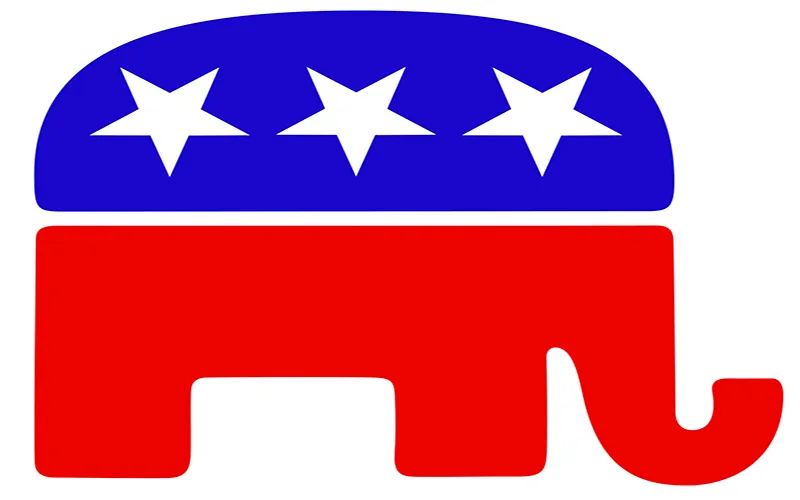-
CENTRES
Progammes & Centres
Location
As the US Presidential elections unfold, Republican candidates would be thoroughly tested on their merit of thinking creatively on issue-based solutions to global challenges and exploring facets of diplomacy and non-military aspects of foreign policies in contrast to the focus on military interventionism and a hawkish vision of American policies abroad.

There is an emerging trend, substantiated by opinion polls and surveys, that the 2016 presidential elections are going to be dominated by foreign policy issues. As the US economy is bouncing back improving job creations and with the unemployment rate down to 5.5 percent, economic concerns that dominated the 2008 and 2012 presidential races are seemingly less critical in 2016. As the US confronts complex global challenges such as countering Islamic state militants in Syria and Iraq, negotiating a deal with Iran, diffusing the crisis in Ukraine and the rise of China, presidential candidates would be thoroughly tested on their abilities to address foreign policy challenges. Several Republicans hopefuls have already announced their Presidential bid to candidacy like Scott Walker, Marco Rubio, Rick Perry, Rand Paul, Mike Huckabee, Ted Cruz, Carly Fiorina, Rand Paul, Rick Santorum, George Pataki, Lindsey Graham and Rick Perry. The former governor of Florida, Jeb Bush, has confirmed that he would announce his bid on June 15 in Miami.
During the presidential elections of 2016, Republican candidates are trying to uncover the Grand Old Party's (GOP) long and distinguished foreign policy lineage that during the last decade had been scarred by the war in Iraq. Republican candidates are focused on developing better appreciation for a full spectrum of foreign policy tools and avenues of non-military aspects in foreign policy. Senator Rand Paul, one of the leading presidential contenders, has defended his libertarian-leaning philosophy on foreign policy and national security by invoking the foreign policy tradition of 'peace through strength' of former Republican President Ronald Reagan. Republican presidential nominees are also focused on developing a comprehensive foreign policy stand on pressing issues such as devising a comprehensive strategy against the Islamic state, WMD proliferation, mobilizing international coalition, assistance to nations on post-war transition and addressing the strategic uncertainties in Asia. Developing cogent strategies on these issues would provide Republican candidates a counter-weight to the experience of former Secretary of State Hillary Clinton who is expectedly the leading Democrat nomination.
GOP contenders, Rand Paul, Marco Rubio, and Lindsey Graham, have all been highly critical of the present Obama administration for not developing a comprehensive plan to prevent the ISIL from controlling large swathe of territories in Iraq and Syria. Scott Walker, the Wisconsin Governor, speaking during a South Carolina GOP Grassroots provided a sharp critique of President Obama's foreign policy and stated that the US needed a President who would stand more firmly against the Islamic State and behind Israel. Walker rallied for a more aggressive strategy stating that the safety of Americans is directly proportional to America's willingness to intervene militarily in the Middle Eastern countries. While there is a striking consensus among all the GOP primaries that the US needs to have a more proactive approach to foreign policy making.
At the frontline of Republican primaries is Jeb Bush, who has spent the last six months raising money and touring voting states and building a political organization to prepare for a campaign. At a townhall meeting in Dubuque, Jeb Bush managed answers to inevitable questions like whether he would have gone to war in Iraq and he did so with intelligence and patience. He opined, "Knowing what we now know, I would not have engaged...I would not have gone into Iraq." As Jeb Bush began his 6 days trip to Europe, in his speech in Berlin, he was sharply critical of President Obama administration's approach towards Russia for being unable to establish a harder line against Russian President Vladimir Putin's annexation of Crimea. Calling for closer ties with Europe, Jeb Bush stated that solidarity with allies are essential to preserve the fundamental principles of international. So far, Jeb Bush has been able to tread the fine balance of distancing himself from the weight of his family name famously stating, "I am my own man, and my views are shaped by my own thinking and my own experiences" and yet also carve out his own vision of America's role in the world.
Marco Rubio, Senator from Florida could prove to be Bush's most formidable opponent as he and bush will jostle in Florida's winner-take-all primary. At the Council on Foreign Relations in New York City, Marco Rubio presented a polished speech with his neoconservative position on the deterioration of America's physical and ideological strength leading to a world that has become far more dangerous than when President Obama entered office. He stated three pillars of his doctrine: American strength, the protection of America's global economy, and a proud advocacy for America's core values. Senator Rubio also presented ideas on downsizing troops and increasing the number of cyber warriors and special operators in a world where set piece battles are increasingly obsolete.
As the Presidential elections unfold, Republican candidates would be thoroughly tested on their merit of thinking creatively on issue-based solutions to global challenges and exploring facets of diplomacy and non-military aspects of foreign policies in contrast to the focus on military interventionism and a hawkish vision of American policies abroad.
(The writer is a Junior Fellow at Observer Research Foundation, Delhi)
The views expressed above belong to the author(s). ORF research and analyses now available on Telegram! Click here to access our curated content — blogs, longforms and interviews.